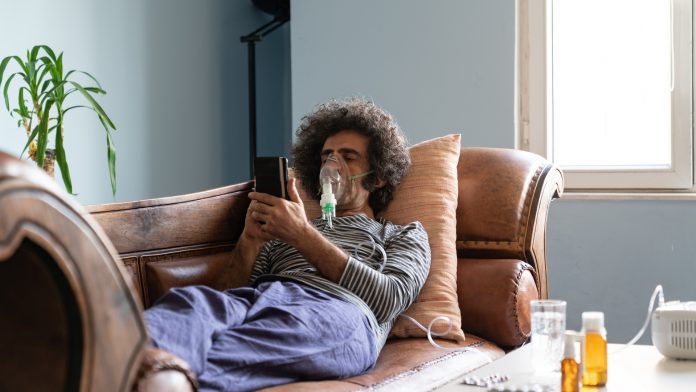
Research pioneered by a team at UC San Francisco suggests that poor quality sleep may be a cause of COPD flare-ups and has a more significant impact than a prior history of smoking.
The research, published in the journal SLEEP, discovered that insufficient or interrupted sleep increases chronic obstructive pulmonary disease (COPD) patients’ chances of a flare-up by up to 95% compared to people with good sleep. Identifying this new cause of COPD symptoms may help mitigate the severe consequences of the condition.
Over time, these flare-ups, characterised by worsening shortness of breath and cough, can result in irreversible lung damage and accelerate disease progression and mortality. The researchers explained that the groundbreaking findings might explain why some African American COPD patients have worse outcomes than white patients.
Aaron Baugh, MD, the study’s first author and a clinical fellow at the UCSF Division of Pulmonary, Critical Care, Allergy and Sleep Medicine, and the Cardiovascular Research Institute, commented: “African Americans are over-represented in low-income neighbourhoods, where people are less likely to have good quality sleep. They may live in crowded spaces with multiple roommates and have less comfortable sleeping conditions, such as a couch, and they may work in a job with a varying schedule that lends itself to sleep disruption.”
Analysing COPD flare-ups
To investigate the cause of COPD flare-ups, the team examined 1,647 COPD patients who were enrolled in the national, multi-centre SPIROMICS study, which was designed to monitor disease progression and the efficacy of COPD treatments.
The team recorded flare-ups of COPD symptoms over a three-year period, which were defined as short-term worsening of symptoms requiring treatment and compared their incidence with self-reported data on quality of sleep.

The average age of the participants at the study’s inception was 65 years, and the average stage of the disease was moderate. 57% of the individuals were male, 80% were white, 14% were African American, and all were either current or former smokers. The participants all completed at least one sleep evaluation at enrolment.
Identifying a new cause of COPD symptoms
The results demonstrated that poor sleep is potentially a cause of COPD symptoms. The team found that compared to patients with optimal sleep, those at the base level of poor sleep had a 25% higher chance of a flare-up within the next year, rising to almost 95% for those with the worst quality of sleep.
Baugh said: “This may amount to a more pronounced effect than the impact of smoking over a 40-year period, versus a 60-year period.”
In the investigation, more African Americans (63%) reported poor sleep compared to white participants (52%).
“While factors like health insurance coverage or respiratory hazards may play important roles in the severity of the disease, poor sleep may gain even more significance when African Americans’ social status improves,” said Baugh. “This can lead to a kind of paradox; in reducing one risk factor, a new risk factor – poor sleep – may take its place. Yet-to-be published data will show that African Americans have a worse sleep even when socioeconomic factors and severity of COPD are accounted for.”
Neeta Thakur, MD, the senior author of the study at the UCSF School of Medicine, concluded: “Sleep hygiene and sleep aids may significantly improve their health. Sleep should be considered both in the clinic and at the wider community/neighbourhood level, where the structural factors that contribute to worse sleep can be addressed.”









